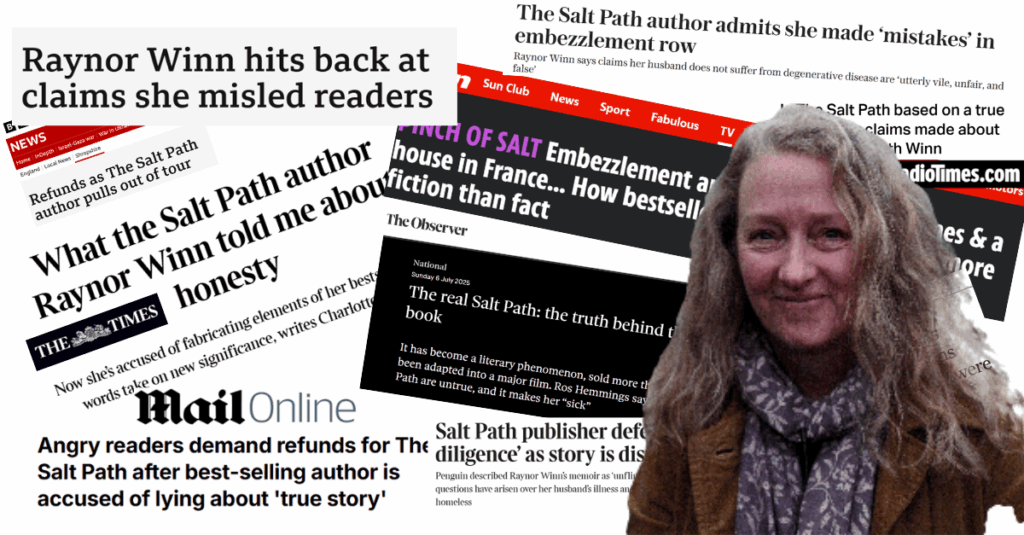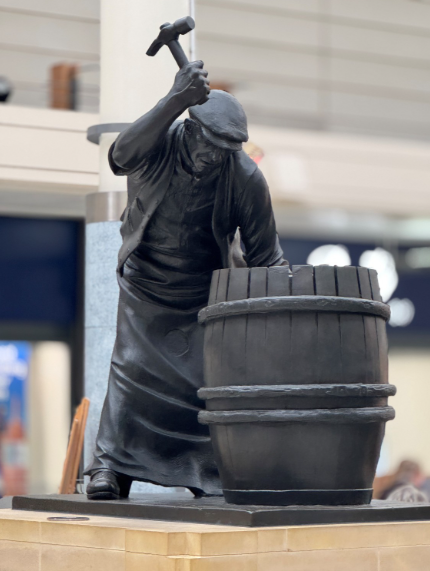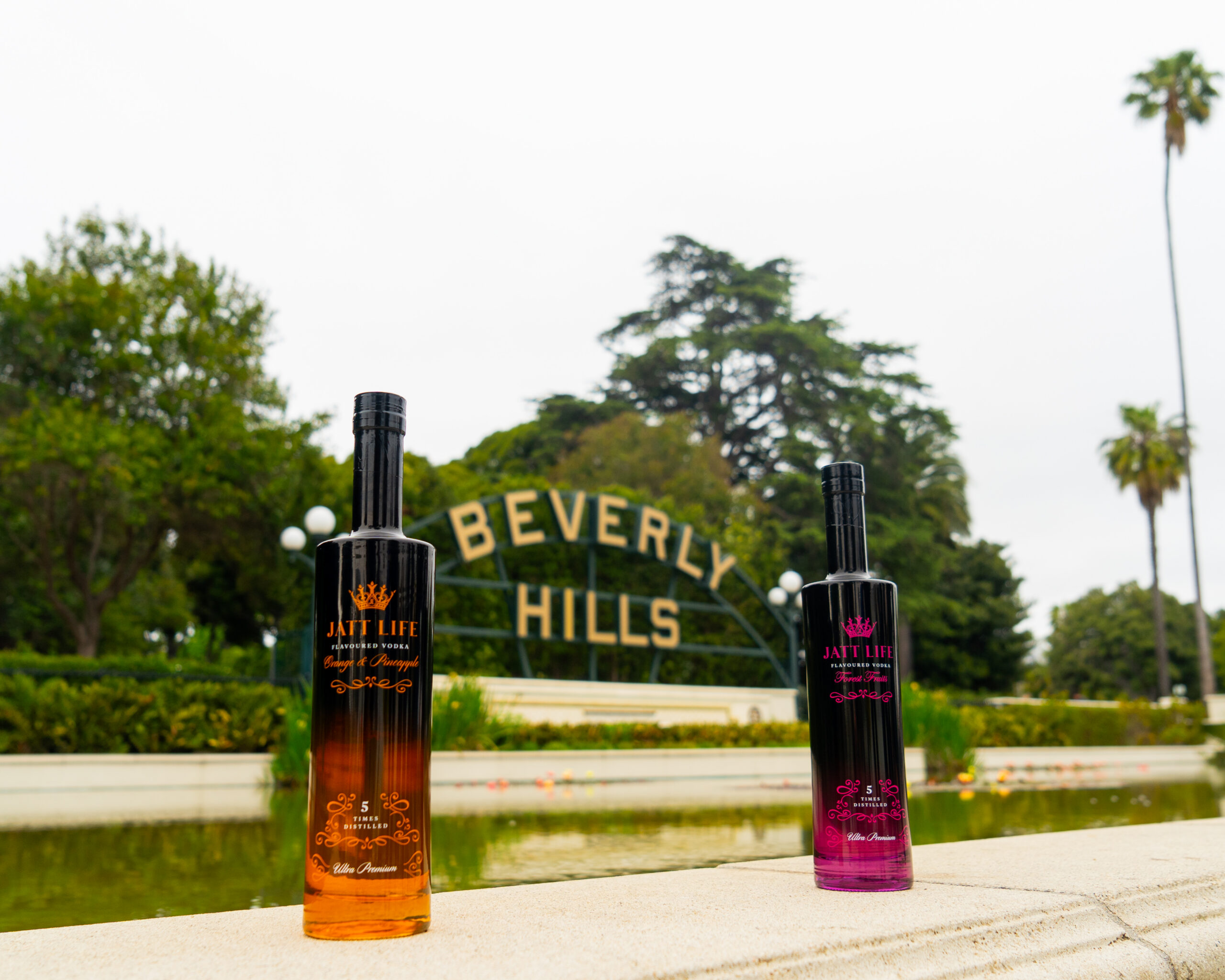I read Raynor Winn’s The Salt Path a few years ago, having been lent it by my sister-in-law, writes Lucy Stephens.
She thought I’d enjoy it because I love reading and the outdoors. And Cornwall.
I may have unwisely said, perhaps in a drunk moment, that I might fancy trying out the South West Coastal Path myself.

Pic credit: Theroadislong
A recent explosive article by The Observer has poured many doubts on the authenticity of a book billed as a true story.
Quick summary for those not in the know: the book and film are about Raynor and Moth Winn who lose their house at same time as receiving a devastating diagnosis.
Faced with no home and an uncertain future, they decide to take their possessions on their backs and embark on the 630-mile trek around the coast of Cornwall.
I quite enjoyed the book. Emphasis on the word ‘quite’. But I didn’t love it as much as I thought I would.
It’s easy to say this now, but I swear if you’d spoken to me at the time, I would have said there were one or two things about it that didn’t quite add up.
I found it vaguely … unsatisfactory.
Persistent thoughts nagged. Why had Raynor and Moth Winn lost their house? How was Moth able to do one of the most gruelling endurance walks in the UK after being diagnosed with Corticobasal Degeneration (CBD) – a degenerative condition for which there is no cure?
Everyone probably now knows that the Observer article has presented a very different version of events, including Raynor and Tim’s real names (Sally and Tim Walker – Raynor has now said ‘Moth’ comes from ‘Timothy’ which sounds fair to me); another explanation as to how they lost their home (the book refers vaguely to a ‘bad investment), plus questions over ‘Moth’s’ diagnosis.
Raynor has said book is a true version of her and her husband’s experiences on a very long walk.
Authenticity
The question is: does any of this really matter? Surely all story-telling – absolutely all of it – entails an element of fluff, of fabrication, of glossing over unfortunate details and focusing on those we want to convey?
There are few situations in life when we actually get at the ‘whole truth’ of something. That phrase that you hear in law courts: ‘The truth, the whole truth, and nothing but the truth’ is actually very difficult to achieve – even if you really want to.
I once came across a newspaper story about a theme park which had received 400 letters of complaint.
How does a person react to that news?
Probably, that the theme park wasn’t doing a very good job if it was being complained about that many times.
See how the brain fills in the blanks there?
I later discovered something interesting about that story. It was this: all but one of those letters had been written by the same person.
What do we think then? Perhaps this: the theme park had unfortunately received 399 letters from someone who clearly had some sort of axe to grind.
The first version of that story is true. But the second is … more true?
I tell this story to illustrate how hard it is to actually tell the truth, even on those occasions when we are striving to.
With every story we ever tell, you have to do a certain amount of editing – otherwise we’d all be here all day listening to it.
But sometimes there are key details which – when missed out – are just too important to ignore.
When glossing over the truth goes too far
Now that The Observer has published its piece, it casts a great shadow over a book that has received any number of plaudits and a lucrative deal for its author.
The saga of The Salt Path – and more may well yet be revealed – tells us something about journalism and our role in PR.
When a story raises a lot of questions, it isn’t really doing its job.
I think in this day and age, when we see pictures on social media platforms that are not representative of women’s actual bodies; posts coming from world leaders that are questionable in their truthfulness, and bias coming at us from all sides as all and sundry spout off their opinions on any matter with very little basis in reality – we have become terribly weary and cynical about that tricky concept: ‘the truth’.
In 2025, now more than ever, we quickly feel lied to and betrayed when public figures or stories are revealed to be not quite what we thought.
It’s the fact that The Salt Path was packaged up as a true story that has got everyone so riled up.
When it comes to putting stories out in the media, of course everyone accepts you’re going to want to present a polished version of events.
But if you’re hiding too many things behind the gloss, you’re doing the public and yourself a disservice and sooner or later those things may come back to bite you.
If you’ve got bad news that’s as much a part of your story as the positives, the bad bits are probably going to come out, and you’re better off fronting it up rather than trying to provide a twisted version of events that ultimately will probably unravel.
By all means tell the story you want to tell.
Just be prepared for someone, somewhere, to start asking questions – especially if your story is successful.
And in this world worryingly often dubbed ‘post truth’, asking questions may well be the most powerful tool that human beings have left.
Can Penguin PR create blogs for your business? Get in touch.








